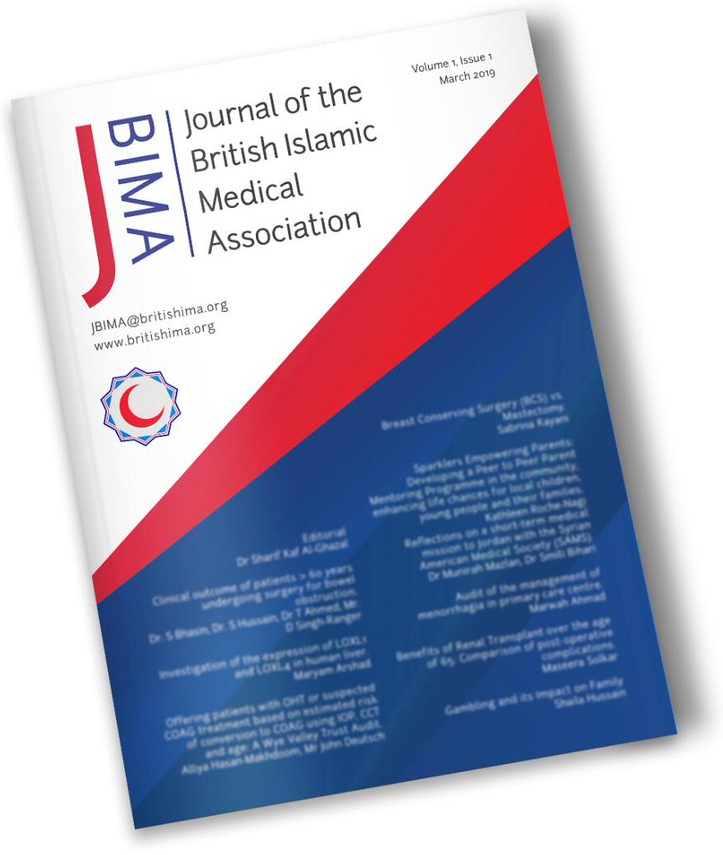
The above aphorism from 19th-century American physician Edward Trudeau encapsulates what the endeavour of medicine is about. The fact that those words are often attributed to Hippocrates is not accidental- physicians throughout the ages have recognised that the outcome of their efforts to stave off illness and suffering, would always require seamlessly integrating the science of understanding and managing disease, and the art of understanding and accompanying people in confronting the impact of illness on the human condition.
Nowhere does the truth of this maxim come into sharper focus, than at the end of life. The reality of this truth has been led to several specific complex challenges for patients, carers and health care professionals from the Islamic tradition who must grapple with end of life issues in the modern Western setting.
In the increasingly complex clinical scenarios where end of life is faced by patients, the concept of medical futility is often a prominent influencer of professional opinion and decision-making. The judgement of medical futility may hold even more importance in clinical end of life scenarios characterised by uncertainty in physiological outcome. However, the concept fundamentally rests on a subjective judgement of what makes life worthwhile, upon which a benefit-harm judgement of treatment value is made. Tension around decisions of treatment withdrawal often arises essentially due to a mismatch between what Muslim patients and carers, and secular healthcare professionals might perceive as a life worthwhile. This tends to be compounded by attitudes towards, and acceptance of, medical uncertainty.
Muslims are likely to view the intangible spiritual domain of life to be fundamental to what constitutes a life worth living. Often this means erring on the side of life-preservation in the face of clinical uncertainty about prognosis- even if this requires a sacrifice in physical quality of life. In contrast, based on a secular conceptualisation of a life worthwhile, the capacity of an individual to connect to the sacred may be a much less important factor for non-Muslim healthcare professionals in judging the futility of medical intervention. In such a situation, the insistence of Muslim patients and carers to continue treatments deemed by professionals as futile may lead to subsequent mutual misunderstandings and misperceptions around values, beliefs and intentions. Often this may end in therapeutic relationship breakdown and even perpetuate mistrust and preconceptions which influence interactions in future, unrelated, clinical scenarios.
On the other hand, Muslim healthcare professionals must increasingly contend with the consequences of an increasingly prominent secular individualism philosophy shaping the myriad of ethical quandaries, narratives, and societal discourses around the physician-assisted suicide debate. This has been thrown once again into sharp focus, following a controversial planned survey outcome interpretation by the UK Royal College of Physicians, which weights towards the college moving to a ‘neutral’ position on proposed legislation to introduce physician-assisted dying. Regardless of the outcome, the issue is part of a wider task for Muslim physicians to understand, engage with and manage, yet not be morally compromised by the inevitable ethical quandaries that arise when dealing with the inherent uncertainty within medical decision-making at the end of life.
How then, both as providers and receivers of end of life care, might we start to face such a mammoth undertaking? An important starting point is to establish open, regular and shared critical thinking and discourse between mujtahideen (expert scholars in Islamic legal theory), care experiencers, and clinicians at the forefront of contemporaneous medical practice within different cultures is key. This will help ensure that scholarly guidance around end of life issues is relevant to the constantly evolving contextual reality whilst being firmly rooted in the timeless principles of our deeply compassionate Islamic tradition. Consequently, this will allow Muslim physicians to create a credible, collective framework that can be used to help articulate moral positions and nurture shared understanding. On a personal and professional level, as Muslim physicians, it is key that we actively engage in cultivating the practical wisdom (phronesis) that has traditionally defined our professional identity. A greater understanding and recognition of phronesis allow the embracing of a decision-making space that values the rich plurality of mindset- key for dealing with the clinical dilemmas at the end of life in a way that allows us to ‘relieve often, comfort always’.
Whoever is granted wisdom has indeed been granted something tremendously beneficial; but none reflect except people of insight. [Quran 2:269]

